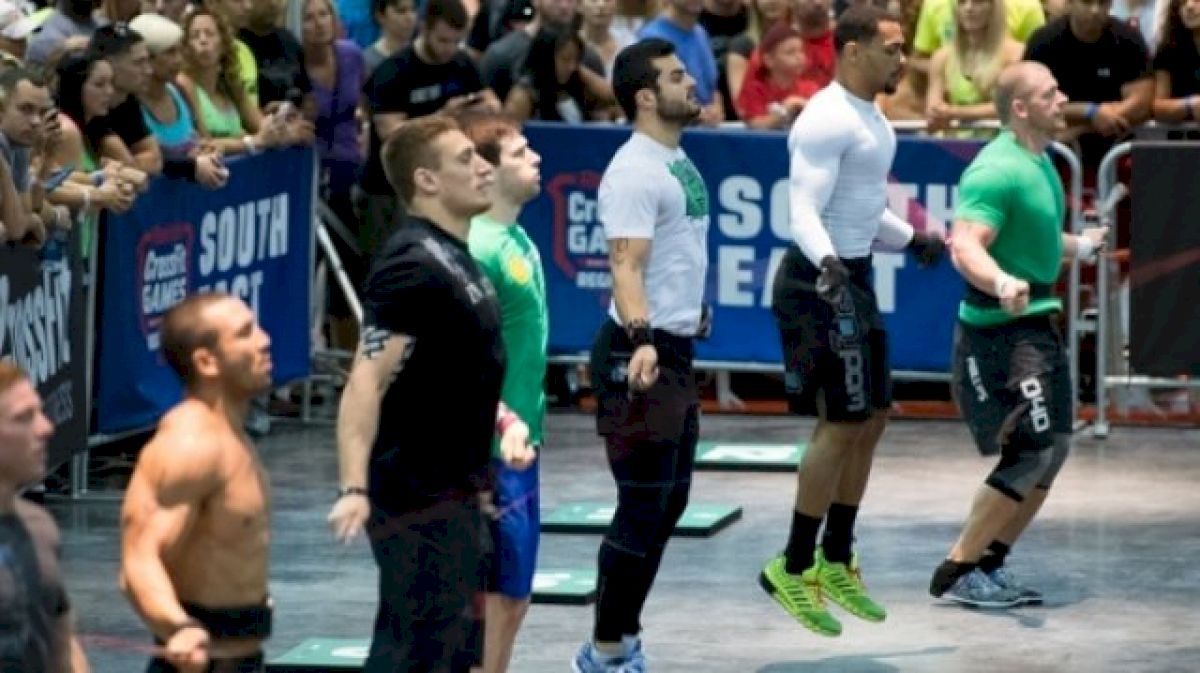Only The Strong Survive: Analyzing Super Regions
Only The Strong Survive: Analyzing Super Regions

By now we are all aware of the changes which have been made for this year’s fast-approaching CrossFit Regionals. The combining of regions to create Super Regionals has left many wondering where the top athletes will end up, but I want to provide an example of what would have happened had the new Super Regionals standards been in place for 2014.
As a case study, let’s see how the largest region under the new format pans out. The now South Regional is now composed of the South Central, South West, and Latin America and is the only super region to combine three separate regions.
First let’s take a look at the difference in points between the top individual male athletes in each region at the closing of the 2014 Regionals:
South West
(35) Tommy Hackenbruck
(45) Chris Spealler
(56) Patrick Burke
Latin America
(56) Emmanuel Maldonado
(65) Conor Murphy
(71) Mark Desin
South Central
(62) Jordan Cook
(78) Jeff Germond
(81) Richard Bolken
Now we are able to visualize the apparent difference in the strength of these regions based on the points listed. If these three regions were to be combined to take the top 5 males last year, only the top athlete (Jordan Cook) from the South Central region would have qualified.
Therefore based on the leaderboard from the 2014 regional scores, the only athletes that would have missed the boat are from the apparent weaker regions. The South West, an obvious powerhouse, would have still qualified their top 3 Males. Latin America’s 2 best athletes would have gone on to participate in The Games as well. The upset however, would have been derived from the South Central region merely qualifying 1 of 5 athletes to continue onto The Games. The South Central’s next best athlete would have been in 8th place after combining the finalized regionals scores.
Needless to say, the new format is on the right track of providing only the best, strongest athletes from each region to perform at the 2015 CrossFit Games thus making it a performance that will not disappoint.
As a case study, let’s see how the largest region under the new format pans out. The now South Regional is now composed of the South Central, South West, and Latin America and is the only super region to combine three separate regions.
First let’s take a look at the difference in points between the top individual male athletes in each region at the closing of the 2014 Regionals:
South West
(35) Tommy Hackenbruck
(45) Chris Spealler
(56) Patrick Burke
Latin America
(56) Emmanuel Maldonado
(65) Conor Murphy
(71) Mark Desin
South Central
(62) Jordan Cook
(78) Jeff Germond
(81) Richard Bolken
Now we are able to visualize the apparent difference in the strength of these regions based on the points listed. If these three regions were to be combined to take the top 5 males last year, only the top athlete (Jordan Cook) from the South Central region would have qualified.
Therefore based on the leaderboard from the 2014 regional scores, the only athletes that would have missed the boat are from the apparent weaker regions. The South West, an obvious powerhouse, would have still qualified their top 3 Males. Latin America’s 2 best athletes would have gone on to participate in The Games as well. The upset however, would have been derived from the South Central region merely qualifying 1 of 5 athletes to continue onto The Games. The South Central’s next best athlete would have been in 8th place after combining the finalized regionals scores.
Needless to say, the new format is on the right track of providing only the best, strongest athletes from each region to perform at the 2015 CrossFit Games thus making it a performance that will not disappoint.